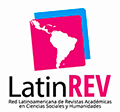Auto-translation and Nabokov’s autobiography
DOI:
https://doi.org/10.11606/issn.2317-9511.v28i0p76-88Keywords:
Translation, Nabokov, Autobiography, Self-identity, Self-translation.Abstract
This paper tries to explore authors’ self-identity in their self-translated autobiographies through a reading of Vladimir Nabokov’s self-writing in two languages and presented in three different forms with three different titles. Nabokov’s autobiography is a twofold translation on the one hand and three different life-writings on the other hand. The first version was written in English and entitled Conclusive Evidence, in which the author seems to be trying to provide evidence for his place in a foreign culture. The second book is the translation of the above-mentioned book, but it was done by the author himself, he approached to this process very creatively, courageously adapting it to a new audience. This Russian version was entitled Druqie bereqa, where Nabokov discuss his life in other shores to his compatriots. This book does not include all parts of the first version, and the author chooses suitable information to affect on Russian soul. The third version Speak Memory is the most mature form of the author’s life writing, who has investigated his identity in two languages, which were almost equal sources to nourish his talent. The article investigates identity searches in Nabokov’s autobiographies, contrasting them where relevant.Downloads
Download data is not yet available.
Downloads
Published
2017-01-24
Issue
Section
Dossiê
License
Copyright (c) 2021 Shafag Dadashova

This work is licensed under a Creative Commons Attribution-NonCommercial-ShareAlike 4.0 International License.
Autores que publicam nesta revista concordam com os seguintes termos:
- Autores mantém os direitos autorais e concedem à revista o direito de primeira publicação, com o trabalho simultaneamente licenciado sob a Licença Creative Commons Attribution BY-NC-SA que permite o compartilhamento do trabalho com reconhecimento da autoria e publicação inicial nesta revista.
- Autores têm autorização para assumir contratos adicionais separadamente, para distribuição não-exclusiva da versão do trabalho publicada nesta revista (ex.: publicar em repositório institucional ou como capítulo de livro), com reconhecimento de autoria e publicação inicial nesta revista.
- Autores têm permissão e são estimulados a publicar e distribuir seu trabalho online (ex.: em repositórios institucionais ou na sua página pessoal) a qualquer ponto antes ou durante o processo editorial, já que isso pode gerar alterações produtivas, bem como aumentar o impacto e a citação do trabalho publicado (Veja O Efeito do Acesso Livre).
How to Cite
Dadashova, S. (2017). Auto-translation and Nabokov’s autobiography. TradTerm, 28, 76-88. https://doi.org/10.11606/issn.2317-9511.v28i0p76-88







